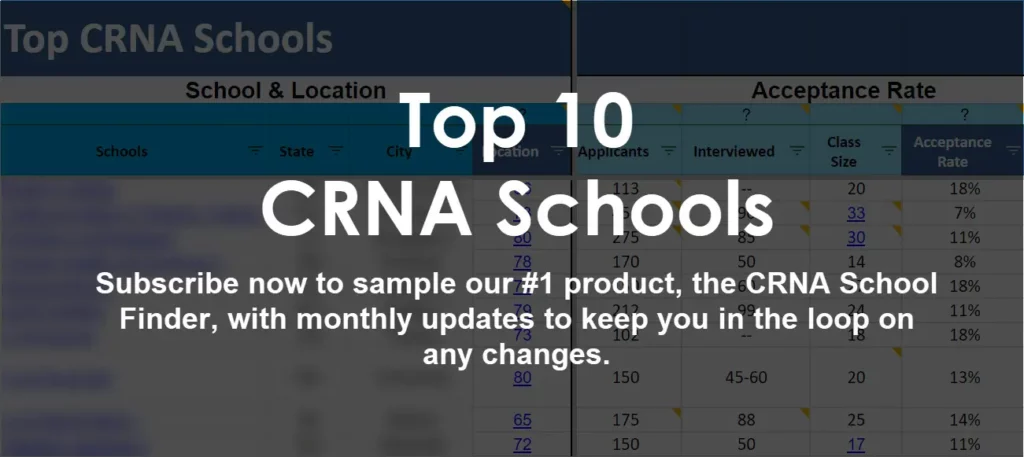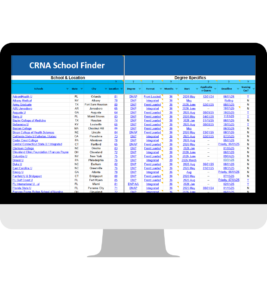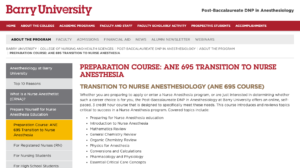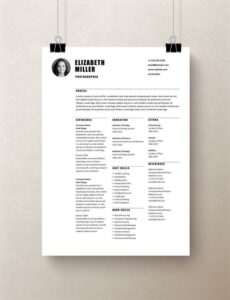When to apply to CRNA School

Using a grad school application timeline can help you keep track of important deadlines, and will help you use the time you have most effectively. Going to CRNA School is a big commitment, and it’s important to get the timing right. If you apply too soon, you might lose heart and give up prematurely. If you wait too long to apply, you may lose momentum in your life and ultimately lose your ambition.
So when is the right time to apply? And how many schools should you apply to? I’ll get to that.
But before I do, I’d like to walk you through some of the major decisions you’ll make along the way and help you plan your time so that you can be as efficient and effective as possible.

Four factors that influence application timing
Fulfilling Your ICU Commitment

Before you apply to CRNA school, make sure you’ve fulfilled whatever commitment you made to your critical care unit before they hired you. It is expensive to train nurses. When a hospital hires a brand new critical care nurse, it costs anywhere from $20,000-$50,000 to train them. For the hospital to recoup that cost, they need you to work a minimum of two years. Most ICUs have either an express or implied contract for new hires to work a minimum of 2 years before moving on to another department (or grad school).
This becomes highly relevant when it comes time to ask your ICU manager for a letter of recommendation. If your plan is to leave the unit before you’ve completed at least 2 years there, it may have a negative impact on the quality of recommendation you receive from your higher-ups.
If your plan is to spend the minimum required time in the ICU, I recommend applying after 1.5 years of ICU experience. This will give you more than 2 years in the ICU before moving on and will look competitive on your application.
How Strong is your Application?
The second consideration about grad school application timing is the strength of your application. Over the past decade, CRNA school admission has become more and more competitive. Ten years ago, you could’ve applied to 5 different programs with a GPA of 2.75. Today, it’s hard to be noticed with a GPA less than 3.2.
The tips and tricks that only a few short years ago I was giving out as suggestions have become minimum standards. And with more critical care nurses facing burnout from the pandemic, interest in CRNA school will only continue to climb.
Make sure that before you apply to CRNA school, you have a strong application. To find out what it takes to be competitive today, check out our article on CRNA School Requirements.
Your Personal Life

The third consideration in your grad school timeline is where you’re at in your personal life. The tricky thing about being accepted into CRNA School is that it requires you to make several major life transitions; each one uniquely jolting.
You graduate from your nursing program and then start living like a grown-up – having a full-time job and income, and accumulating the things that come with living on your own.
After several years of this, you have to give it all up to become a student again. For many SRNAs, this means selling much of what you have and starting over again in another state. Add a spouse and kids to the mix, and things can get complicated fast.
Before you apply to CRNA School, make sure that the most important people in your life are fully supportive of this decision and that your relationship with them is strong.
CRNA School Tuition and Living Expenses

The final consideration in your grad school timeline is financing. Even if you WERE allowed to work full time during your CRNA program, finances would be tight. But since working is either ill-advised or not allowed at most CRNA programs, you’re better off planning another way to pay.
You will likely need to borrow money, live frugally, AND depend on savings. The more you have in savings before applying, and the less you owe in debt, the better off you’ll be.
Remember that student loans are often not disbursed until several weeks into the term, so you’ll want to have some cash on hand as a backup.
CRNA Grad School Application Timeline
To make the most of your time and to avoid costly mistakes, you’ll want to plan out your next steps. Some CRNA hopefuls are surprised to learn that the time to begin the application process is about 2 years before you begin your nurse anesthesia program. If you have transferred to a critical care unit in order to qualify for CRNA school, you’ll want to begin your grad school application timeline about 6 months into your ICU work experience. This translates into you applying after 1.5 years of experience in the ICU.

You’ll need one year to narrow down your school selection, take the GRE (required by 50% of CRNA programs), get your CCRN (either required or recommended by 70% of programs), shadow a CRNA (recommended or required by 40% of programs), ask for letters of recommendation, write your personal statement, request transcripts, re-take any major science courses where you scored below a “B”, clean up your resume, and fill out applications.
Here’s a graduate school application timeline, beginning 12 months before the deadline. Because deadlines and start dates for CRNA programs are literally year-round, we will use a generic 12-month countdown. Also, note that the timeline is only a suggestion and is meant to help pace your time and energy. Please modify it to better suit your individual situation.
12 Months Before the CRNA School Application Deadline
- Understand your CRNA School Options
- Select CRNA Schools to apply to
- Shadow a CRNA
Understand your CRNA School Options
In order to make your best choice, you need to first understand your CRNA School options. Then, you can select schools to apply to. Let me just say that there will be a difference between schools that you’re interested in, and schools you can apply to with a high chance of acceptance.
 Just last week, I had a [high achieving] CRNA hopeful email me with a list of 8 schools he had decided were competitive enough, prestigious enough, and offered him a strong chance at a solid education.
Just last week, I had a [high achieving] CRNA hopeful email me with a list of 8 schools he had decided were competitive enough, prestigious enough, and offered him a strong chance at a solid education.
Then, he bought the CRNA School Finder which allowed him to quickly compare each school according to their requirements. He came back to me with an entirely different list. This time, he had only four schools.
He told me that there were certain science prerequisite classes that were required by some programs and not by others. By understanding his options better, he was able to choose schools where he already met the requirements. This would mean he could apply an entire year sooner. All of this, because he understood his CRNA School options.
Select 1-5 CRNA Schools to Apply to
Once you know your options, it’s time to select CRNA programs to apply to. I’m all about efficiency, but in this case, you want to think about what will be most effective. Make sure you match your available time and energy directly with your application choice. If you are already struggling to keep full-time hours and deal with the emotional stresses of life, don’t punish yourself by applying to many schools at once.
Be thoughtful about your situation. Do what works and what you can easily manage. But know that it’s better to send out one quality application that’s well thought through than three poorly executed ones.
How many CRNA Schools should you apply to?

Unfortunately, there’s no straight answer for that. It really depends on your priorities and how competitive you are against other applicants.
Some hopefuls decide that it’s only worth it to become a CRNA if they can get accepted to a school close to home. Those applicants may choose 2-3 programs within driving distance to their current home, or close to a family member where they will have support. Those applicants choose to apply and then re-apply till they either get accepted or decide to do something different with their lives.
Others may choose to become a CRNA at all costs – they’re willing to relocate, apply to 8 schools, and take extra science prerequisites.
Then there are those who get accepted after sending in their first application.
There are really no one-size-fits-all approaches here. The decisions you make will reflect your own personal values, ambition, and willingness for change.
Having said that, if you plan on applying to many schools, apply to 1-2 at a time. Juggling too many applications at once can be a recipe for mistakes.
Shadow a CRNA

Whether your program(s) require it or not, you should plan to shadow a CRNA. This is perhaps your most important task because the experience will either strengthen your resolve to pursue this path or else cut you free from it.
I’ve spoken to several CRNA hopefuls who got all the way to the end (got accepted into a program), only to walk away and pursue something entirely different. If your heart’s not in it, it’s foolish to continue.
Shadowing a CRNA helps you experience what you will be doing for the next few decades. It’s worth giving up a few of your days off to get this done.
When you shadow a CRNA, be sure to take copious notes. Also, check the schools you’re applying to and see if they have a special “shadow experience” form to fill out. If they don’t, just document everything you remember from the day. You’ll look back on these notes right before your CRNA School interview. Your notes will help you relive the experience as if it happened yesterday.
11 Months to go… CRNA Grad School Application Timeline
- Reach out to program directors
- Put CRNA School Open House Dates on Your Calendar
- Make a Master List of Tasks and Track Your Progress
- Register for a Graduate Level Chemistry or Statistics Class
- Register to take retake any core science course where you scored less than a “B”
Reach Out to Program Directors
If it’s not clearly stated on the program’s website, reach out to the program(s) you plan on applying to and ask them which science courses/ grad level courses they recommend you take. This can be very specific in some cases. Some graduate classes will not transfer to certain programs.
Put CRNA School Open Houses on your Calendar and Plan to Network
Check the program websites for open house dates. If you don’t find any, ask your program if and when they participate in this. It’s likely that due to the pandemic, they will have virtual tour options. CRNA hopefuls often underestimate the value of networking. I’ve heard many stories of applicants being accepted quickly after meeting the right person. Just like in a job, it often matters who you know more than what you know or how qualified you are.
Make a Master List of Tasks and Track Your Progress – Grad school application timeline tip
Once you have decided which school(s) you will apply to, it’s time to make a master list of all you have yet to do. Remember that this will be different for each person, depending on where you are applying and what you have already accomplished.

If you are applying to multiple schools, you will need to meet the requirements of ALL of those schools. I can’t stress enough how important this is. Every year, hundreds of applications are thrown out at schools across America because applicants fail to meet the minimum requirements.
***Don’t apply unless you meet minimum requirements.***
Be sure to go to EACH PROGRAM WEBSITE and double-check the minimum requirements. This is your life. Your future. Details matter and one missed detail can erase all of your careful planning. Check and double-check deadlines.
Make a chart of each school you plan on applying to (use Microsoft Excel or Google Sheets). Record all of their requirements and put a checkmark by those you’ve already completed. For future tasks, mark a date on your calendar when you commit to having the task complete. Then add these dates to your digital calendar with alerts – essentially putting the process on autopilot.
Register to Take or Retake Prerequisite Science Courses
Here are the situations that would require you to take or retake a core science class:
- You’re applying to a program that requires your core science courses to be recent, within the last 5-10 years, and you’ve been out of school longer than that
- You scored less than a “B” in a prerequisite class, such as chemistry or statistics (consider taking a graduate level version of the class if possible)
If you need to take or retake an undergraduate science class, remember that most classes have set enrollment periods and many have waiting lists, so you’ll need to plan accordingly. Make sure your final grade has been released by the time you are ready to send transcripts.
To easily find schools without a time constraint on prerequisite classes, or to find schools that don’t require course prerequisites, use the CRNA School Finder.
Register for a Graduate Level Class
Acing a graduate-level chemistry or statistics class will go a long way to show your academic competence. This is especially important if your cumulative or science GPA is lower than 3.4.

Of course, the absolute best class to take or retake is whichever one is specifically recommended by the director of the school you wish to attend.
However, if you are not given a suggestion by your school, a popular online graduate-level course is Transition to Nurse Anesthesia. It covers chemistry, physics, pharmacology, physiology, and math. It is recommended both by students who have taken it as well as program directors. It’s a great survey course and will give you an accurate sample of the content you’ll be introduced to in your nurse anesthesia program.
Also, you know that if you hate the course or do poorly in it, you just saved yourself 2-3 years in school and a whole lot of $$$.
10 Months to go… CRNA Grad School Application Timeline
Create CV File

Remember when you applied to your last job… all the questions you had to answer? Addresses to all the houses you’ve lived in over the past 7 years, contact information for all of your old places of employment, every school you attended and when, etc.? Which schools have your transcripts for which classes?
Create a digital file where you keep all of these details stored and chronicled so you can find them quickly and easily. The organization is vital here, as it saves you from looking frantically for something later on. Notice that at this stage, you’re not polishing your resume, simply getting all your information in order so that when you do go to polish your resume, you have everything you need.
9 Months to go… CRNA Grad School Application Timeline
- Register for the GRE
- Get your BLS, ACLS and PALS if you don’t have them already
- Plan your Leadership efforts
Register for the GRE
If the school(s) you plan on applying to require(s) or recommend(s) the GRE, or you know yourself to be an above-average test taker and feel it would be worth the effort, or you have a GPA 3.4 or below, here’s what you’ll want to do.
Find a testing center near you and schedule your test date for 2-3 months out. Take a practice test early on to determine how much studying you’ll need to do, and which sections to spend most of your time on. By taking your test well before the application deadline, you give yourself plenty of time to re-take it for a higher score if necessary.
BLS, ACLS, and PALS
If you’re working in a critical care unit, it’s likely you already have these. If not, they’re simple to obtain, and are required by the majority of programs.
Plan your Leadership Efforts
Because of the autonomous nature of nurse anesthesia, it’s important that your application reflects leadership. It’s up to you what that leadership looks like. At a minimum, you need to be the nurse who is given difficult patients. You need to know how to use the advanced equipment you have on your unit. You need to be the nurse your coworkers go to when they need help.

Beyond that, here are some options for you to consider:
- Charge nurse
- Preceptor
- Teach ALS, BLS, or PALS certification course
- Get published in a nursing journal
- Join a nursing organization and plan to BE INVOLVED
- Medical mission trip
Bottom line is that each nurse has unique opportunities to show leadership. There are too many options to list them all. What matters is that whatever you choose, you are ACTIVELY involved. Don’t join nursing organizations just to pay the fee and have something to put on paper. The point is to show leadership, so you need to actually put in the work and create positive change within your organization for it to count.
7-8 Months to go… CRNA Grad School Application Timeline
Prepare For GRE
Most people feel comfortable with 2-3 months of preparation before taking the GRE. Set aside specific hours each week to focus on review. Develop a specific study plan that will help you bridge the gap between your practice score and your target score.
5-6 Months to go… CRNA Grad School Application Timeline
- Take the GRE
- Send your GRE Scores
On test day, you will be given a preliminary test score. This can sometimes vary from the final score you receive 1-15 days later, but it’s usually the same. If you’re happy with your score, you can send it to up to 4 schools at no additional cost.
4-5 Months to go… CRNA Grad School Application Timeline
- Register for and begin studying for the CCRN
- Begin writing your Personal Statement(s).
Register for and Prepare for the CCRN
Once you have completed a minimum of 1750 hours of critical care experience, you’re eligible to sit for the CCRN. Taking the CCRN kills many birds with one stone. It shows you’re a high achiever, and it gives you practice mastering clinical questions you’re likely to be asked again during your CRNA School interview.
Writing your personal statement

Most programs have specific guidelines for exactly how long your personal statement needs to be and what questions it needs to answer. Be sure to follow instructions to a “T”. This is not the time for creativity.
3 months to go… CRNA Grad School Application Timeline
- Ask for Letters of Recommendation
- Retake the GRE if needed
Ask for Letters of Recommendation
Most schools will require you to obtain letters of recommendation from specific positions in the hospital (charge nurse, CRNA whom you’ve shadowed, nursing professor, ICU director, etc.). If specific instructions are given, follow them explicitly! Failure to follow instructions portrays either a lack of respect or inattention to detail; neither of which are desirable. Only choose people who know you well, and on a professional basis (ICU staff, nursing professors, etc.). Obtaining references from random people who know you on a personal level is a kiss of death to your application.
2 Months to go… CRNA Grad School Application Timeline
- Request Transcripts
- Polish your CV
- Start Application Forms
- Get Feedback on your Personal Statement
- Take the CCRN
Request Transcripts

In most cases, you can simply request transcripts online, through the school’s website. If you’re not able to do this online, you can also call the registrar’s office or stop by in person and ask for your records to be sent. Most schools will send up to 4 transcripts for free. After that, they tend to charge $25 or so per transcript.
Polish your CV
By this point in your nursing career, you have a CV that has landed you several important positions. Keep refining your CV as you have more to offer. Be sure to update it with your latest achievements.
Start Application Forms
Now is the time to refer back to the organizational work you did earlier. You’ll need that file you created handy as you’ll be entering a lot of tedious details.
Get Feedback on Your Personal Statement
At this stage, you’ll want to get feedback on your personal statement. Read it to a friend or family member, and ideally to someone in the medical community who has a relevant perspective. Make adjustments as needed.
One Month to go… CRNA Grad School Application Timeline
- Check on your Transcripts
- Check on your Recommendation letters
- Finish Personal Statements
- Finish Applications
Your only job here is to make sure things are going as planned. If not, follow up with the appropriate people and get these things moving along.
Final Month
Check your application for errors, and when you’re confident you’ve done everything necessary, SUBMIT and hope for the best.
About Application Deadlines

In the case of rolling admissions or an early admissions deadline, whenever possible, get your application submitted as soon as possible. In these cases, priority is often given to earlier applicants. If you are looking for every advantage you can find, be sure that your application is one of the first they receive.
When You have Been Put on the Waiting List
If, instead of an acceptance letter, you are put on the waiting list, make sure you follow up with that school periodically about your application. I know of someone who is now a CRNA who was waitlisted for 4 months. During this time, she followed up periodically about her application, and because of this, she was chosen over all the others who had been waitlisted. She was the ONLY waitlisted applicant to check on her application status!
This follow-up showed the director that she really wanted this and was committed to it. She was accepted to the program because of her persistence.
Remember that persistence and planning pay off.